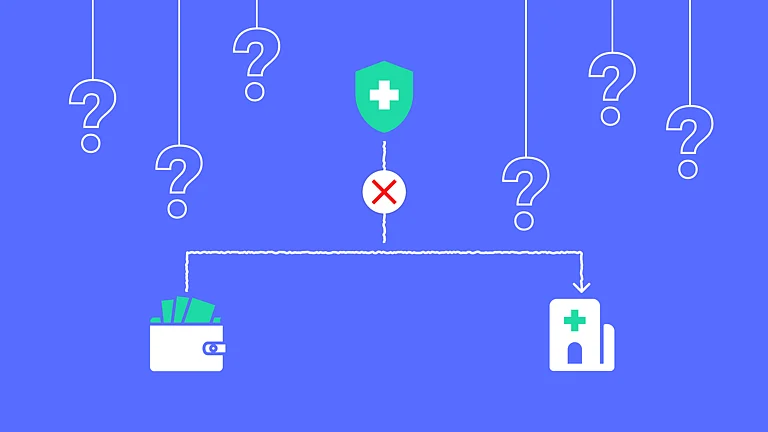A sharp increase in health insurance premiums and growing discontent among policyholders has prompted the finance ministry to pull up the Insurance Regulatory and Development Authority of India (Irdai), asking it to step up its oversight and course-correct key regulatory gaps.
According to a report by the Economics Times, at a recent meeting with Irdai representatives, senior officials from the finance ministry expressed serious concerns over the way premiums, especially in health insurance, have been rising, often pricing consumers out. The discussion, according to the report, also covered issues related to poor grievance redressal, unsatisfactory claim settlement processes, and governance concerns in some standalone health insurance companies (SAHIs).
“The government explicitly expressed its concerns over the hike in insurance premiums, especially health insurance, complaints on claim settlement, and corporate governance issues, particularly in some SAHIs,” said a source who attended this meeting.
Insurance Premium Hikes
Premium hikes have been particularly sharp over the past year. Several policyholders have reported annual increases in the range of 12–15 per cent, in some cases even higher. This has triggered drop-offs, with many customers either reducing their coverage or exiting altogether.
The timing couldn’t be worse, India’s insurance penetration, which was already low, fell further to 4 per cent in 2022-23 from 4.2 per cent the year before. Life insurance penetration dropped from 3.2 per cent to 3 per cent, while the non-life segment remained flat at 1 per cent.
New Bill to tackle these issues?
With the Insurance Amendment Bill in the pipeline, which proposes significant liberalisation including allowing 100 per cent FDI and composite licenses, the Centre seems to be nudging Irdai to clean house. “The government wants some of these issues to be taken up on an urgent basis and even set some new protocols if required before the Bill gets passed,” one official said.
There is also unease about how board decisions are being made in insurance companies, particularly those backed by private equity. As per the report, an industry source pointed out that several premium hikes were initiated by insurers with PE backing, and the rest of the sector followed suit. “PE funds work on 5–7 year cycles and are focused on exit multiples. That shapes decisions on pricing, capital, and business strategy,” he noted.
Vacant Irdai Chair and its ripple effects
Adding to the regulatory vacuum is the absence of a full-time chairperson at Irdai since March. While the search is on, the report indicates the government may prefer appointing a seasoned bureaucrat who can bring both administrative rigor and an eye for consumer issues.
This is not the first time the regulator has had to rein in pricing decisions. In January, Irdai issued fresh guidelines limiting annual premium increases for senior citizens (those above 60 of age) to 10 per cent, unless the insurer secured prior approval. The move came after the regulator flagged disproportionate hikes in some health plans, noting that older policyholders were the most vulnerable to sudden cost escalations.
With premiums rising and grievance redressal processes often proving inadequate, consumer dissatisfaction has been mounting steadily. The finance ministry’s pushback signals that the government is now paying closer attention, not just to affordability, but to whether the industry is being held adequately accountable.














